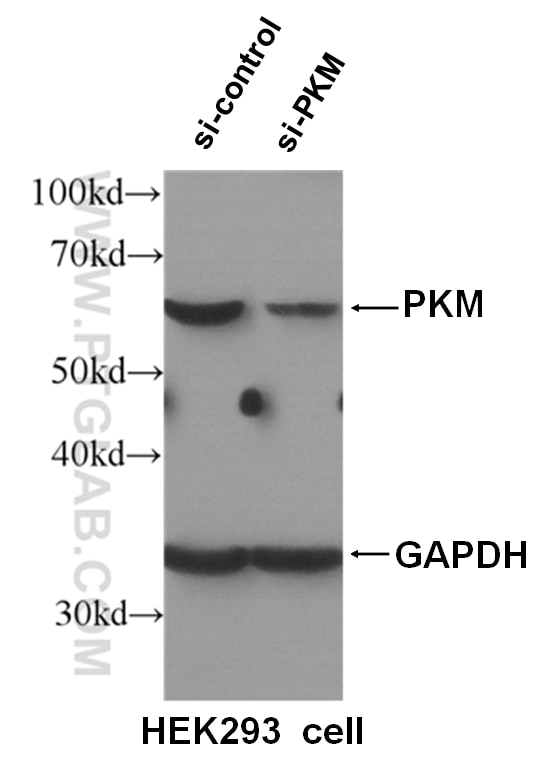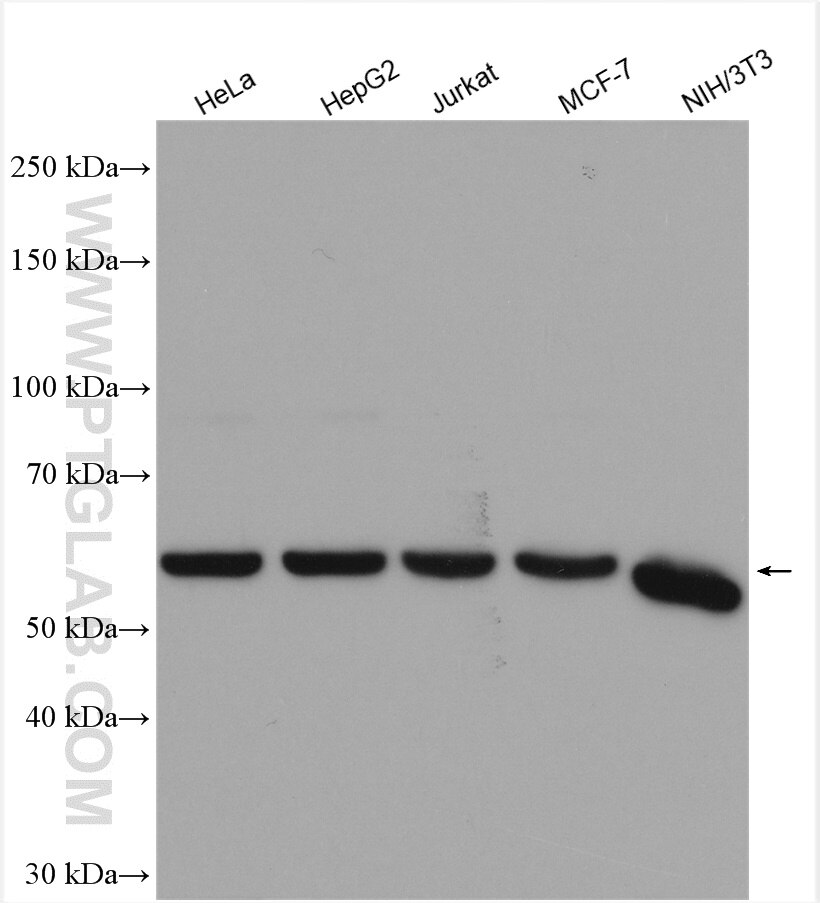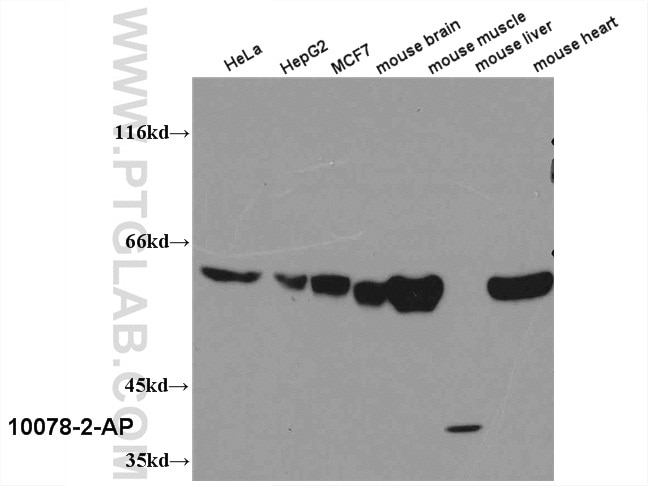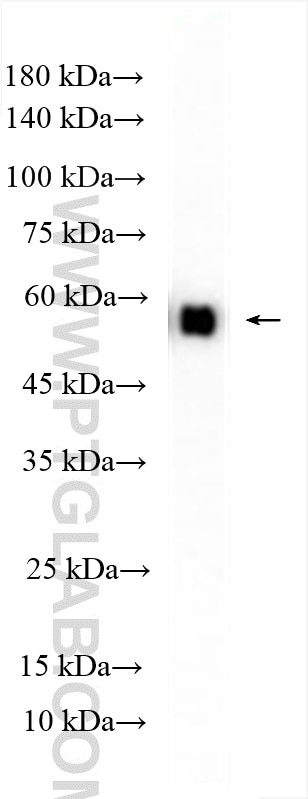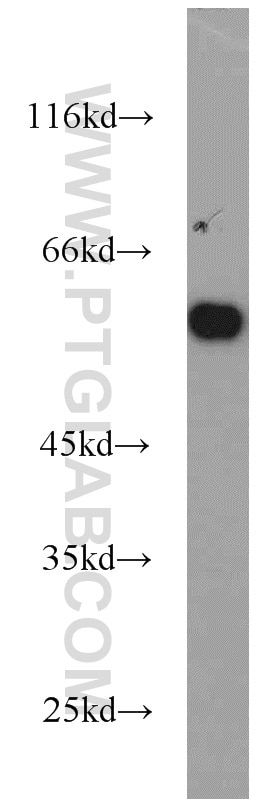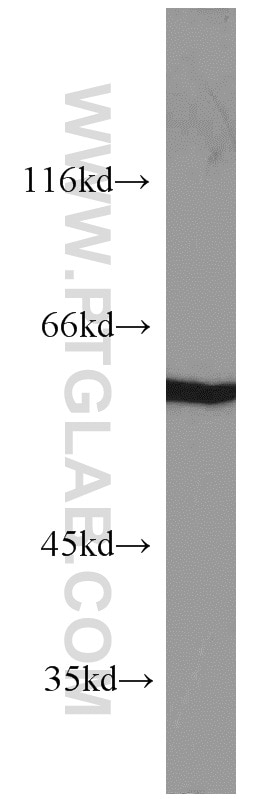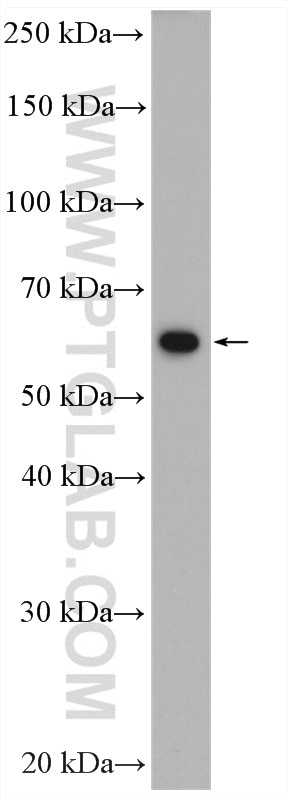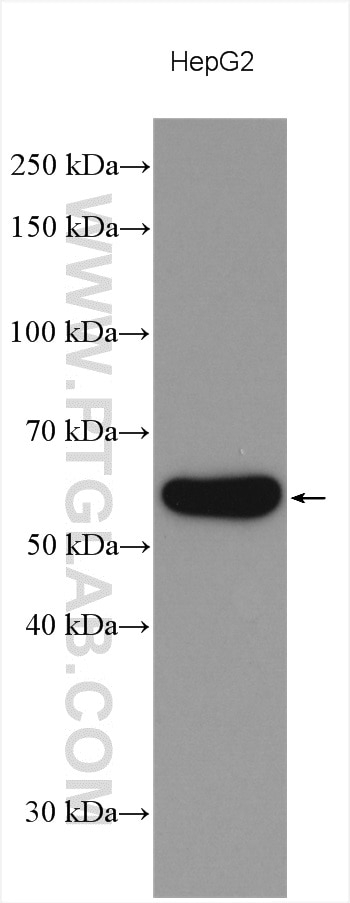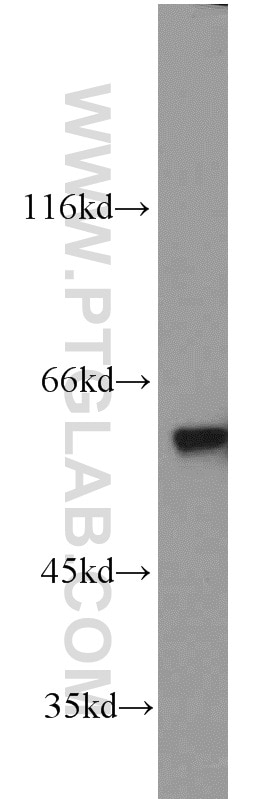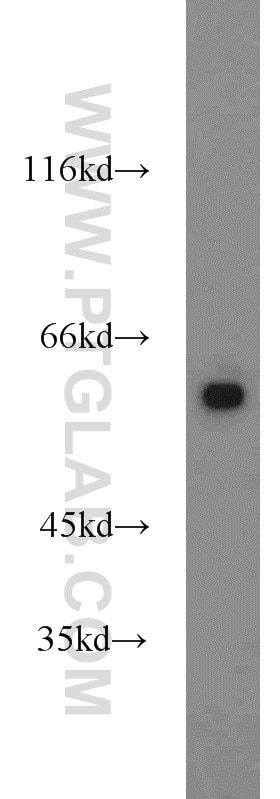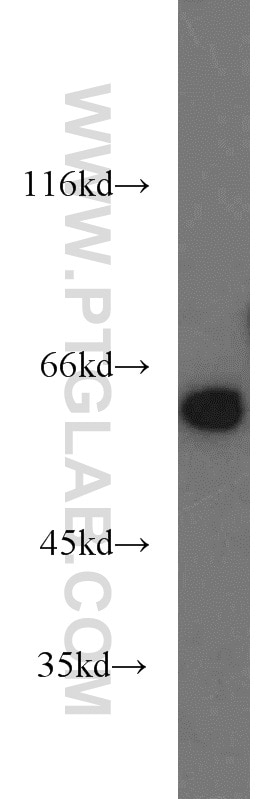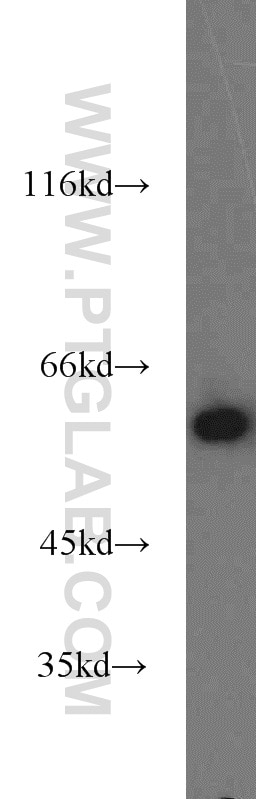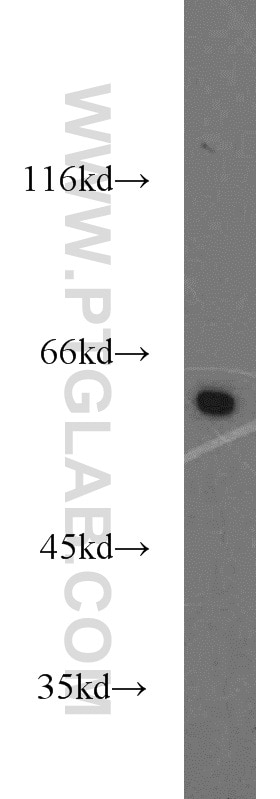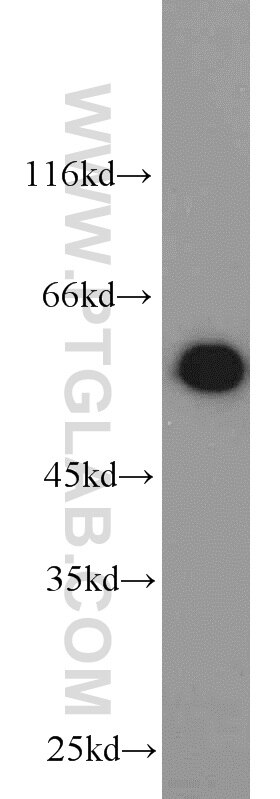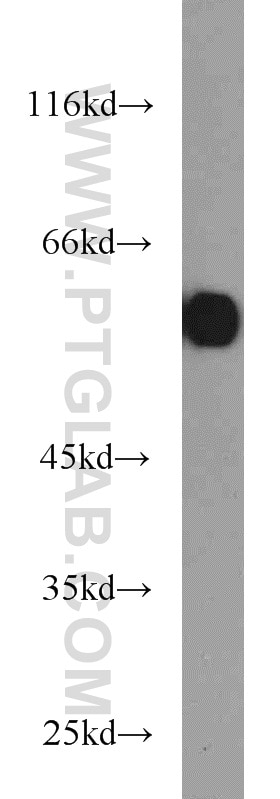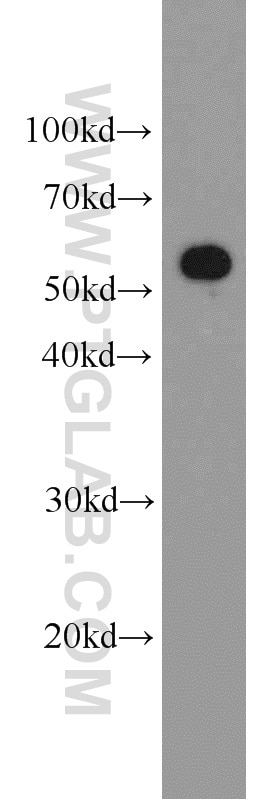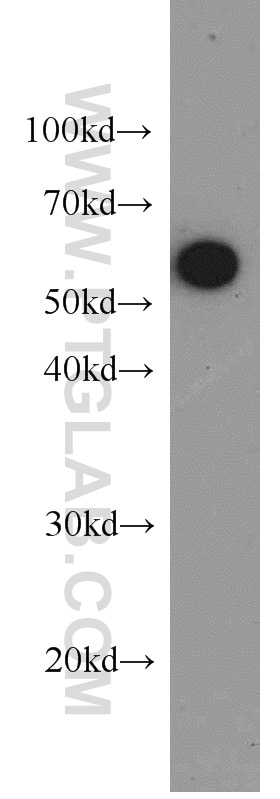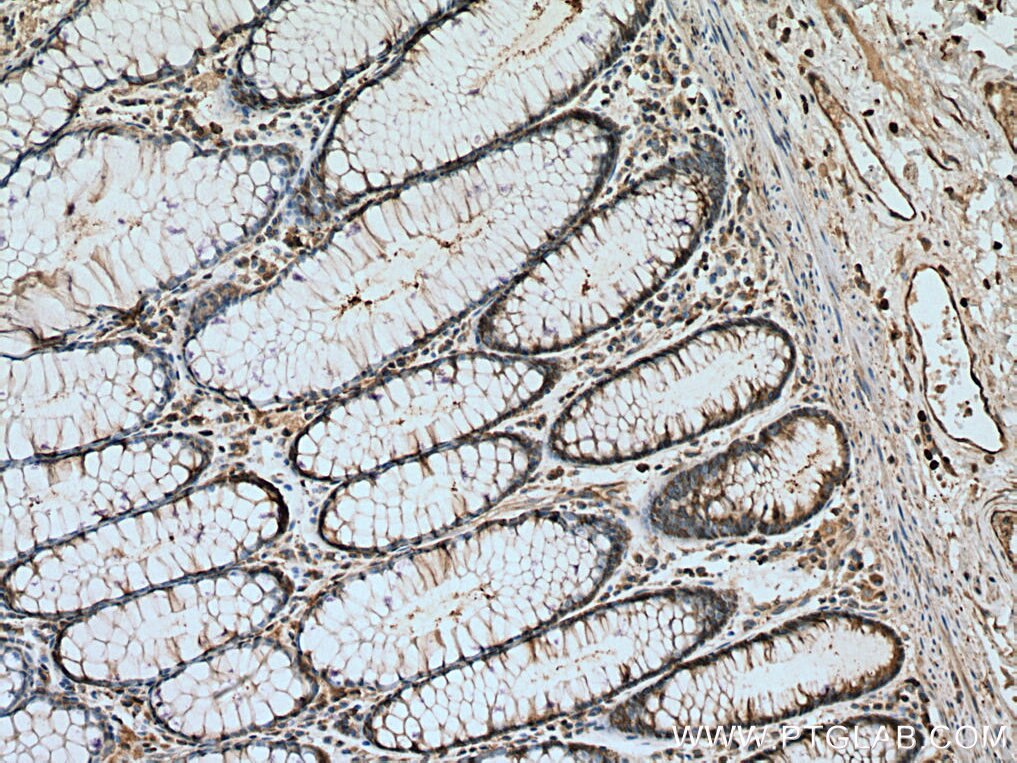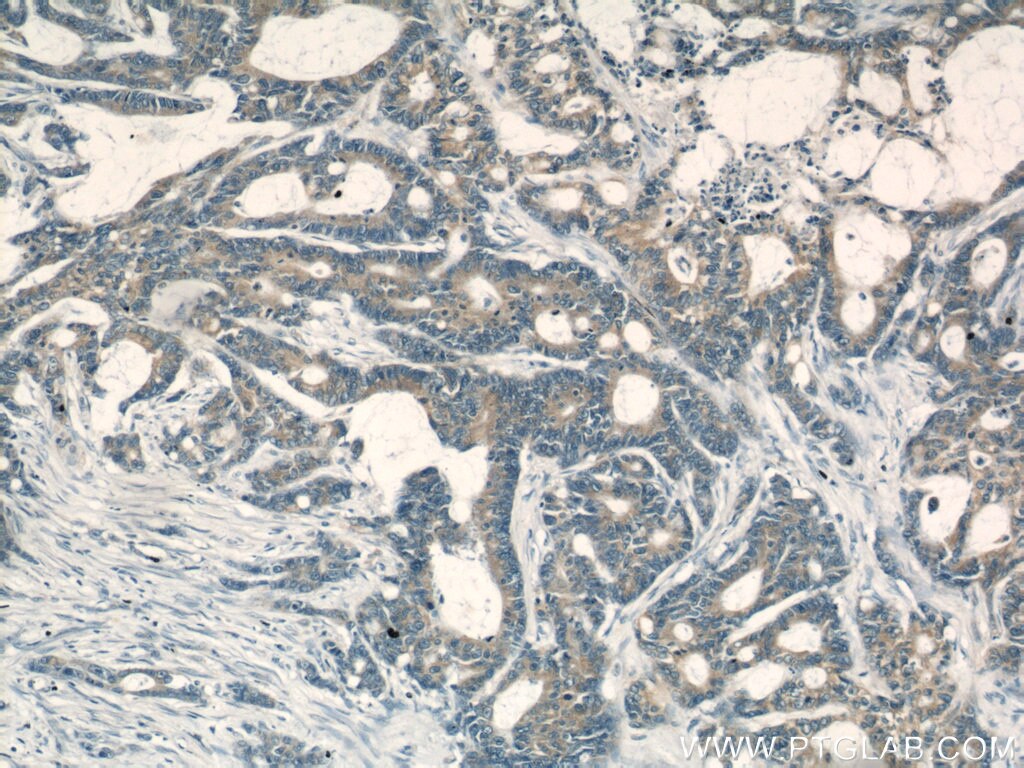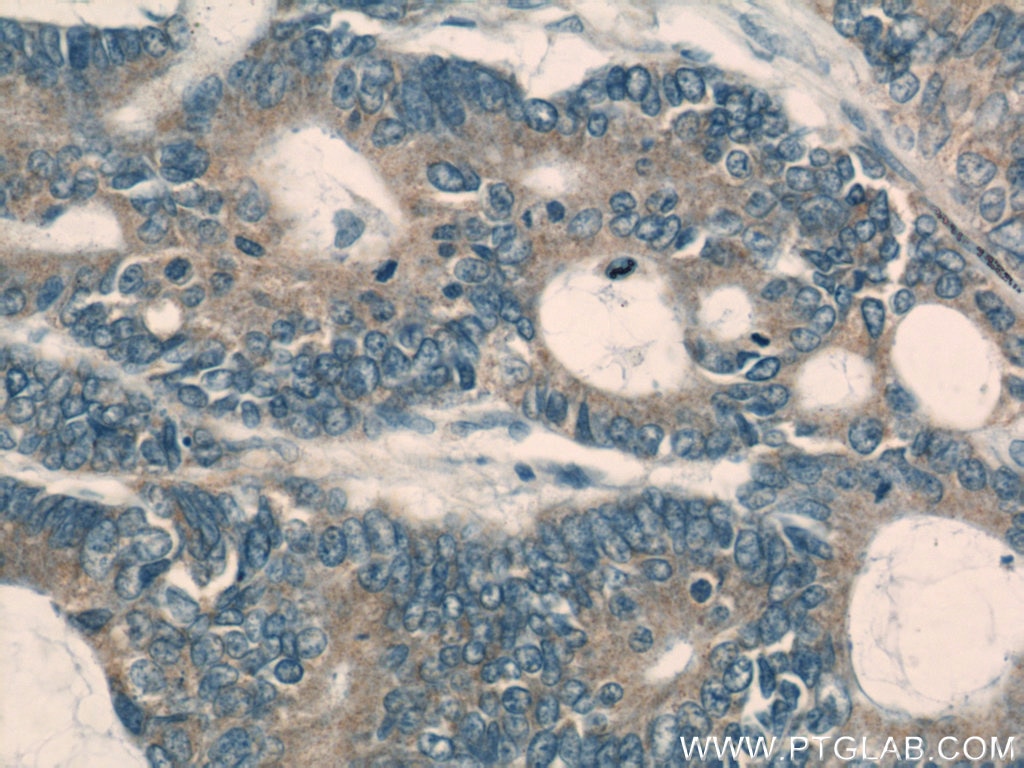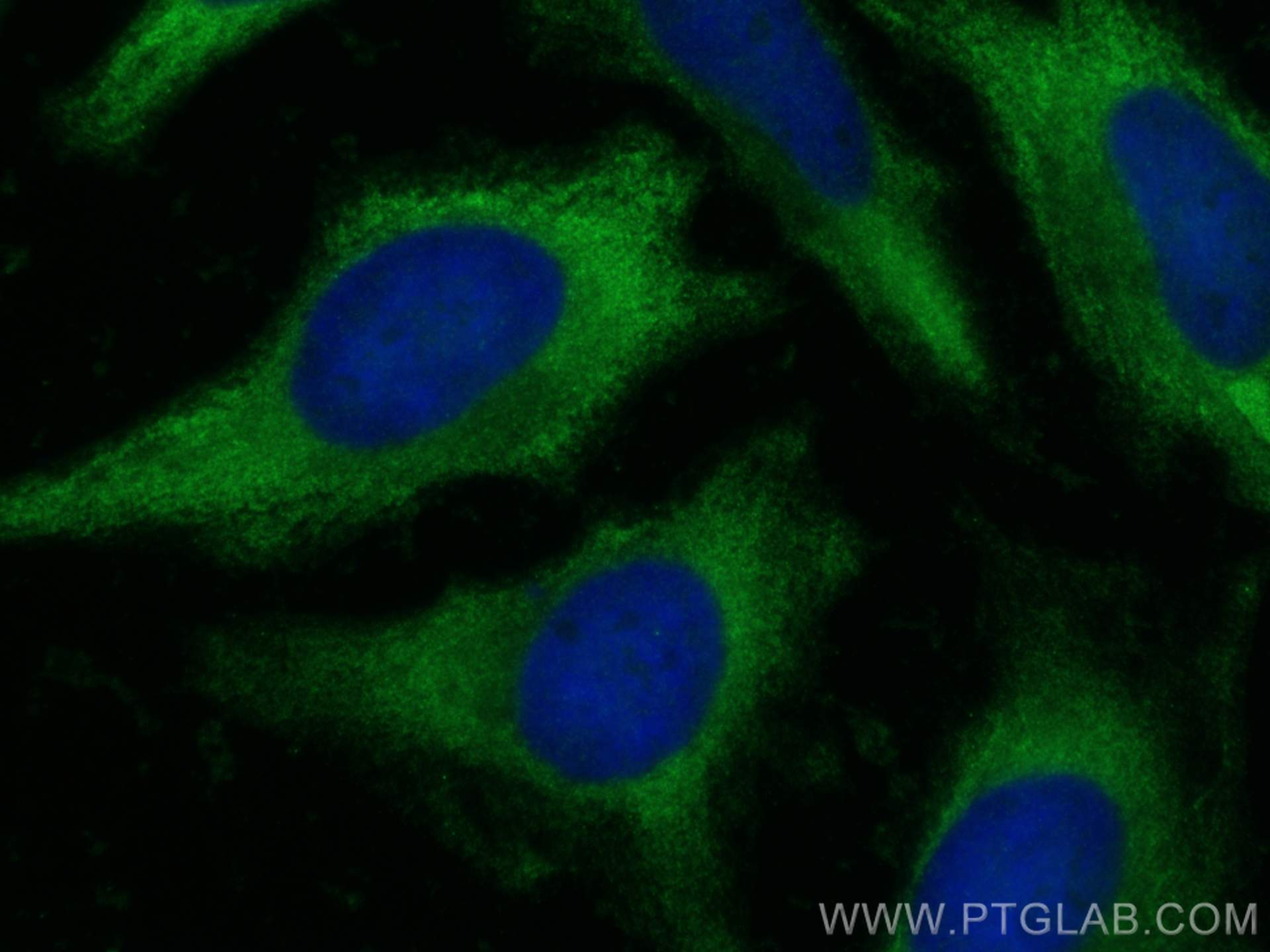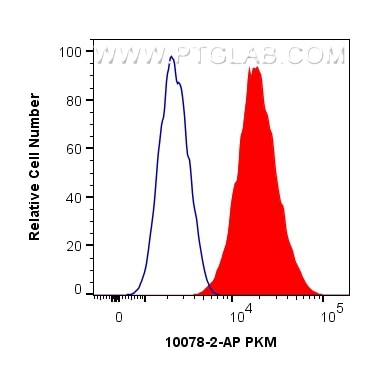- Featured Product
- KD/KO Validated
PKM Polyklonaler Antikörper
PKM Polyklonal Antikörper für WB, IHC, IF/ICC, FC (Intra), ELISA
Wirt / Isotyp
Kaninchen / IgG
Getestete Reaktivität
human, Maus, Ratte und mehr (1)
Anwendung
WB, IHC, IF/ICC, FC (Intra), IP, ELISA
Konjugation
Unkonjugiert
Kat-Nr. : 10078-2-AP
Synonyme
Geprüfte Anwendungen
| Erfolgreiche Detektion in WB | HeLa-Zellen, HEK-293-Zellen, HepG2-Zellen, Jurkat-Zellen, MCF-7-Zellen, Maushirngewebe, Mausherzgewebe, Mausmuskelgewebe, Multizellen/-gewebe, NIH/3T3-Zellen, Raji-Zellen, Ratten-Skelettmuskelgewebe, SH-SY5Y-Zellen, SKOV-3-Zellen |
| Erfolgreiche Detektion in IHC | humanes Kolonkarzinomgewebe Hinweis: Antigendemaskierung mit TE-Puffer pH 9,0 empfohlen. (*) Wahlweise kann die Antigendemaskierung auch mit Citratpuffer pH 6,0 erfolgen. |
| Erfolgreiche Detektion in IF/ICC | HeLa-Zellen |
| Erfolgreiche Detektion in FC (Intra) | HepG2-Zellen |
Empfohlene Verdünnung
| Anwendung | Verdünnung |
|---|---|
| Western Blot (WB) | WB : 1:1000-1:4000 |
| Immunhistochemie (IHC) | IHC : 1:250-1:1000 |
| Immunfluoreszenz (IF)/ICC | IF/ICC : 1:200-1:800 |
| Durchflusszytometrie (FC) (INTRA) | FC (INTRA) : 0.40 ug per 10^6 cells in a 100 µl suspension |
| It is recommended that this reagent should be titrated in each testing system to obtain optimal results. | |
| Sample-dependent, check data in validation data gallery | |
Veröffentlichte Anwendungen
| WB | See 25 publications below |
| IHC | See 5 publications below |
| IF | See 2 publications below |
| IP | See 1 publications below |
Produktinformation
10078-2-AP bindet in WB, IHC, IF/ICC, FC (Intra), IP, ELISA PKM und zeigt Reaktivität mit human, Maus, Ratten
| Getestete Reaktivität | human, Maus, Ratte |
| In Publikationen genannte Reaktivität | human, Hausschwein, Maus, Ratte |
| Wirt / Isotyp | Kaninchen / IgG |
| Klonalität | Polyklonal |
| Typ | Antikörper |
| Immunogen | PKM fusion protein Ag0110 |
| Vollständiger Name | PKM pyruvate kinase, muscle |
| Berechnetes Molekulargewicht | 58 kDa |
| Beobachtetes Molekulargewicht | 58 kDa |
| GenBank-Zugangsnummer | BC000481 |
| Gene symbol | PKM |
| Gene ID (NCBI) | 5315 |
| Konjugation | Unkonjugiert |
| Form | Liquid |
| Reinigungsmethode | Antigen-Affinitätsreinigung |
| Lagerungspuffer | PBS with 0.02% sodium azide and 50% glycerol |
| Lagerungsbedingungen | Bei -20°C lagern. Nach dem Versand ein Jahr lang stabil Aliquotieren ist bei -20oC Lagerung nicht notwendig. 20ul Größen enthalten 0,1% BSA. |
Hintergrundinformationen
PKM, also named as OIP3, PK2, PK3, PKM1/2, p58, THBP1, CTHBP and Tumor M2-PK, belongs to the pyruvate kinase family. It is glycolytic enzyme that catalyzes the transfer of a phosphoryl group from phosphoenolpyruvate (PEP) to ADP, generating ATP. It stimulates POU5F1-mediated transcriptional activation. PKM plays a general role in caspase independent cell death of tumor cells. PKM has 2 isoforms named as PKM1/M2. The activity of the M2 isoform can be inhibited by tyrosine kinase signalling in tumourcells. The primary pyruvate kinase isoform before tumour development is PKM1; however, the primary isoform from four independent tumours is PKM2.(PMID:18337823). This antibody can recognize both PKM1 and PKM2.
Protokolle
| PRODUKTSPEZIFISCHE PROTOKOLLE | |
|---|---|
| WB protocol for PKM antibody 10078-2-AP | Protokoll herunterladen |
| IHC protocol for PKM antibody 10078-2-AP | Protokoll herunterladenl |
| IF protocol for PKM antibody 10078-2-AP | Protokoll herunterladen |
| STANDARD-PROTOKOLLE | |
|---|---|
| Klicken Sie hier, um unsere Standardprotokolle anzuzeigen |
Publikationen
| Species | Application | Title |
|---|---|---|
Sci Adv CGG repeat RNA G-quadruplexes interact with FMRpolyG to cause neuronal dysfunction in fragile X-related tremor/ataxia syndrome. | ||
Cancer Sci Identification of TPI1 As a potential therapeutic target in pancreatic cancer with dependency of TP53 mutation using multi-omics analysis | ||
J Cell Mol Med METTL14/miR-29c-3p axis drives aerobic glycolysis to promote triple-negative breast cancer progression though TRIM9-mediated PKM2 ubiquitination | ||
Sci Rep Proteomic analysis indicates that mitochondrial energy metabolism in skeletal muscle tissue is negatively correlated with feed efficiency in pigs. |
